 |
| Dr. Brittany U. Carter, Wellsource Director of Health & Research |
This article was written by Dr. Brittany U. Carter, Wellsource Director of Health & Research, and was originally published in the May 2019 issue of Care Analytics News.
Randomized controlled trials are the gold standard in research. Their design minimizes bias and can prove causality between an intervention and an outcome. In order to do so, trial investigators must control the people who participate in the study, the interventions they receive and how outcomes are measured and analyzed. But this means that the results and conclusions are not always generalizable to different populations and settings, also known as 'the real world.' At Wellsource, we define real-world data as data that is gathered in a non-controlled environment.
This data can be used to inform decision making and personalize care, such as targeting interventions to wellness professionals' population needs. For example, if health professionals are trying to reduce the incidence of diabetes, they might look at health risk assessment data to identify individuals in their population with risk factors for diabetes, such as poor diet. They may also look at change readiness data and identify those individuals who have indicated that they are ready to make a change in regard to their eating habits, and target nutrition interventions to those most amenable to change. By only targeting individuals at high risk for diabetes who are ready to make a change in their diet, nutrition programs will appeal directly to the individual, resulting in higher engagement and ultimately, a reduction in diabetes incidence and costs.
Real-world data can also be used to assess the effectiveness of implemented health interventions. Health professionals may make an informed, evidence-based decision about which program to implement in their population, but they also need to make sure it was successful. A randomized controlled trial may show that a weight loss program is effective -- but when compared to real-world data, it might not be as successful. Health professionals can use Wellsource health risk assessment data, for example, to see if their population's health and behaviors changed over time as a result of the intervention. Once again, this type of data is making sure health decisions are successful in the real world.
It should be noted that not all vendors make this data readily available to their customers. Wellsource is in a unique position to operationalize the real-world data it collects via health risk assessments by making it readily and easily available to customers at no cost. This is a key reason many health plans and wellness providers such as Virgin Pulse and Bravo Wellness choose to work with Wellsource.
To learn more about what criteria Bravo Wellness used to select a health risk assessment, check out our case study.








